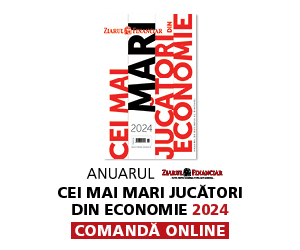The final number of drugmakers that could cease to operate as of this year following their failure to comply with the Good Manufacturing Practice (GMP) standards is 17 or 6% of the market, quantitatively speaking, Victor Voicu, chairman of the scientific council of the National Drug Association (ANM) said.
The standards became mandatory on January 1, 2004, after being delayed for a few years.
Although the move was expected to catch most producers (almost 60 in all)) off guard, things are not that bad. The major producers (Sicomed Bucharest, Terapia Cluj, Antibiotice Iasi, Europharm Brasov) had their significant departments certified for GMP in due time.
As for medium-sized producers, about 20 are GMP certified, including all the players that have significant market shares: Sindan, Biofarm, Laropharm, Pharmatech or Armedica. All in all, 25 companies are GMP certified.
"Four more companies are about to secure GMP certification and another 28 have begun procedures in view of certification in 2004. Five companies have ceased production and 12 more will do the same at some point this year. Compared with the initial estimates, we may say the situation is very good, precisely because the other producers' portfolio includes the products of the companies that will cease to operate," Victor Voicu says.
Although, quantitatively speaking, 6% of the market may seem a lot, the drugs made by the 17 companies that are due to stop production are generic, therefore relatively cheap. This is why their market share is smaller in terms of value. The Romanian drug market is worth 600 million euros.
Obtaining the GMP certification entailed a considerable investment effort from Romanian drugmakers, estimated at over $150 million.
The GMP compliance process took $10-$20 million investments for each of the major producers such as Sicomed, Terapia, Antibiotice or Europharm.
This investment effort received no support from the Health Ministry, which through its drug price control policy did not acknowledge the GMP-related investments as being part of the total product cost.
Forced to restructure and invest, the Romanian producers of generic (unprotected by patent) drugs have constantly lost ground to international groups in the last few years.
This is how the drug imports, very small at the beginning of 1990, have come to account for about 65% of the market.
Theoretically, the business of the Romanian generic drugmakers should follow an upward trend as of this year, also stimulated by the international trends where generic drugmakers are gaining ground, as patents for increasingly more drugs expire.






























![Au ajuns milenialii la momenutul ]n care au trecut de etapa o floare, un animal şi multe călătorii şi intră în etapa în care îşi doresc copii şi familie?](http://storage0.dms.mpinteractiv.ro/media/401/341/5544/22420322/2/ioana-13.jpg?height=150})














